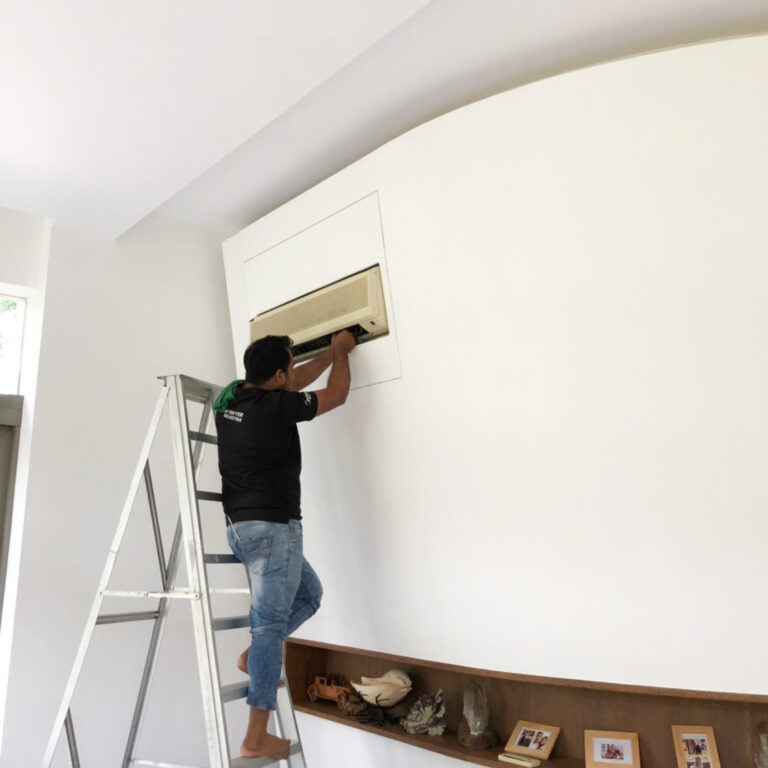Singapore’s tropical climate is characterized by high temperatures and humidity levels, making air conditioning a common and essential feature in many homes. However, a question that often arises is whether it is beneficial or harmful to sleep with an air conditioner on. In this article, we will explore the pros and cons of using air conditioning while sleeping in Singapore and provide practical tips for optimal use.
The Pros of Sleeping with an Air Conditioner
1. Improved Sleep Quality:
High temperatures and humidity can make it difficult to fall asleep and stay asleep. An air conditioner helps create a cool and comfortable sleeping environment, which can significantly improve sleep quality. A consistent, cool temperature helps regulate the body’s internal thermostat, promoting better rest.
2. Reduced Risk of Heat-Related Issues:
Sleeping in a hot and humid environment can increase the risk of heat-related issues such as heat rash, which can happen when your sweat glands become blocked. Air conditioning can help mitigate these risks by maintaining a safer indoor temperature.
3. Improved Air Quality:
Modern air conditioners often come with air filters that help remove pollutants, allergens, and dust from the air. This can be particularly beneficial for individuals with allergies or respiratory issues, as it ensures cleaner air during sleep.
4. Enhanced Comfort and Relaxation:
A cool room provides a more comfortable and relaxing environment, which can contribute to a more restful and undisturbed sleep. The gentle hum of the air conditioner can also act as white noise, helping to drown out other disruptive sounds.
The Cons of Sleeping with an Air Conditioner
1. Dryness and Dehydration:
Air conditioning can lead to reduced humidity levels in the room, which can cause dryness in the skin, eyes, and respiratory passages. Prolonged exposure to dry air may result in discomfort, such as dry throat or nasal congestion.
2. Increased Energy Consumption:
Running an air conditioner throughout the night can lead to higher energy consumption, which translates to increased electricity bills. This is a significant consideration for budget-conscious households.
3. Potential for Temperature Fluctuations:
Setting the air conditioner too low can lead to an overly cold environment, which might result in discomfort or even illness. It’s important to find a balance to avoid waking up too cold or with muscle stiffness.
4. Environmental Impact:
Continuous use of air conditioning contributes to energy consumption and environmental impact. It’s important to consider eco-friendly practices to minimize the carbon footprint.
Tips for Sleeping Comfortably with an Air Conditioner
1. Set an Optimal Temperature:
The ideal temperature for sleeping varies from person to person, but a general recommendation is to set the air conditioner between 24-26°C. This range ensures a comfortable environment without being too cold or too warm. Furthermore, this will also help save on energy bills as a lower temperature requires more energy to maintain.
2. Use a Timer or Sleep Mode:
Many modern air conditioners come with a timer or sleep mode feature. Using these functions allows the unit to automatically adjust the temperature or turn off after a set period, conserving energy and preventing excessive cooling.
3. Maintain Proper Airflow:
Ensure that the air conditioner is not blowing directly onto the bed. Direct airflow can cause discomfort and may lead to dry skin or a stiff neck. Adjust the vents to distribute the air evenly throughout the room.
4. Hydrate and Moisturize:
To combat the dryness caused by air conditioning, keep a glass of water by your bedside and drink regularly. Applying a moisturizer before bed can help prevent skin dryness.
5. Regular Maintenance:
Regular maintenance of your air conditioner is crucial for optimal performance and air quality. Clean or replace air filters regularly to ensure that the air you breathe is free from dust and allergens. It is recommended that you have a professional technician to service your air-conditioners every 3 – 6 months depending on your usage.
6. Use a Humidifier:
If you find the air too dry, consider using a humidifier in conjunction with your air conditioner. This can help maintain a balanced humidity level, preventing dryness and ensuring a comfortable sleeping environment.
7. Choose Energy-Efficient Models:
Invest in an energy-efficient air conditioner that are more energy efficient. These can be easily identified with the number of NEA Ticks, with 5 ticks being the best and most energy efficient. These models consume less power and can help reduce electricity bills while providing effective cooling. To read more about NEA Energy Labels, you can visit our Guide to NEA Energy Labels and Ticks for Air-Conditioners
Conclusion
In the sweltering heat and humidity of Singapore, sleeping with an air conditioner can significantly enhance comfort and sleep quality. However, it’s essential to balance the benefits with potential drawbacks such as dryness, increased energy consumption, and environmental impact. By following the tips provided, you can optimize your use of air conditioning while sleeping, ensuring a comfortable and restful night’s sleep without compromising on health or energy efficiency.
If you’re considering upgrading your air conditioning system or need professional advice on maintaining a comfortable sleeping environment, you can contact our professionals from Infinity Air. With over 20+ years of experience and more than 15,000 servicing jobs completed, Infinity Air is confident to settle your air-conditioning issues and provide prompt and effective solutions. Whatsapp us at 9383 6574 today!


